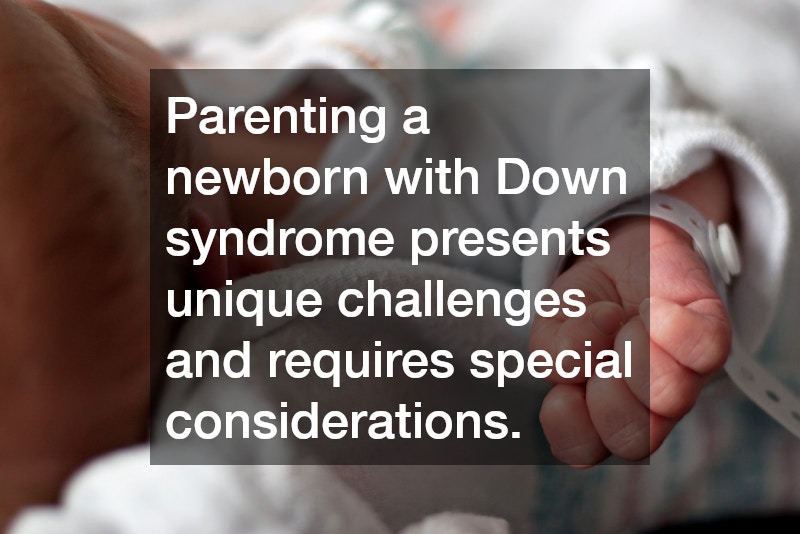Parenting a newborn with Down syndrome presents unique challenges and requires special considerations. Each child is unique, and understanding the specific needs and characteristics of a newborn with Down syndrome is essential for providing effective support. Early intervention and a strong parental support system are paramount, ensuring that affected families receive the guidance and resources necessary to foster healthy development and well-being.
Understanding Down Syndrome: A Medical Overview
Down syndrome is a genetic condition that occurs when an individual has a full or partial extra copy of chromosome 21, affecting approximately 1 in 700 babies born in the United States. This additional genetic material alters the course of development and causes the characteristics associated with Down syndrome.
Understanding these genetic aspects not only aids in providing better medical care but also helps families prepare for potential health impacts and developmental milestones.
Infants with Down syndrome are at a higher risk for certain health issues, including heart defects, respiratory and hearing problems, and thyroid conditions. Knowledge of these potential complications allows parents and health professionals to implement proactive monitoring and care strategies. Additionally, it emphasizes the importance of a comprehensive healthcare plan that addresses both routine care and specialized needs.
Early Intervention Programs for Developmental Support
Early intervention programs are crucial for supporting the developmental needs of newborns with Down syndrome. These programs focus on enhancing physical, cognitive, and social skills from a young age. By participating in such programs, families can help their babies develop important skills and reach crucial milestones more effectively.
Research has shown that babies who receive early intervention services make significant progress in their development. Physical and occupational therapies are common components of these programs, designed to support muscle strength, coordination, and functional abilities. Early intervention professionals work with families to create personalized plans tailored to each child’s specific requirements, ensuring an optimized approach to learning and growth.
Connecting with Support Groups and Communities
Joining support groups and communities can be incredibly beneficial for parents of children with Down syndrome. Local and online support networks provide opportunities to connect with other families experiencing similar challenges and triumphs. Sharing experiences and resources within these groups can offer practical advice, emotional comfort, and a sense of belonging.
These communities often organize gatherings, workshops, and events that promote socialization and learning among families. For example, many areas have chapters of national organizations like the National Down Syndrome Society, which provide structured support and advocacy resources. By engaging with these groups, parents can become part of a larger network dedicated to enhancing the lives of individuals with Down syndrome.
Accessing Professional Counseling and Guidance
Professional counseling and guidance can offer vital emotional support to parents adjusting to life with a newborn with Down syndrome. Counselors can help families navigate the emotional impact of a Down syndrome diagnosis and provide coping strategies for managing stress and anxiety. Having access to unbiased emotional support allows parents to express their feelings in a safe environment.
In addition to emotional counseling, seeking guidance from healthcare professionals well-versed in Down syndrome care can assist in making informed decisions about their child’s needs. Genetic counselors, pediatricians, and therapists can offer personalized advice based on each child’s health status and developmental goals. This professional insight helps in planning a comprehensive care approach tailored to a family’s specific situation.
Regular Pediatrician Visits and Specialized Care
Regular pediatrician visits are essential for monitoring the health and development of newborns with Down syndrome. Routine check-ups allow healthcare providers to track growth milestones and detect potential health issues early on. These visits are crucial for early diagnosis and intervention, which can have significant long-term benefits for the child’s overall well-being.
In addition to general pediatric care, referrals to specialists are often necessary to address specific health concerns associated with Down syndrome. Cardiologists, audiologists, and endocrinologists can provide targeted assessments and treatment plans. Specialized care ensures thorough management of any conditions present, such as congenital heart disease or hearing loss.
Physical and Occupational Therapy Services
Physical and occupational therapies are integral to promoting development in newborns with Down syndrome. These services focus on enhancing physical abilities, motor skills, and daily living capabilities through targeted exercises and activities. Incorporating therapy into a child’s routine provides opportunities for growth and skill development.
Therapists work closely with families to develop custom plans tailored to the individual needs of each child, addressing areas such as muscle tone, coordination, and mobility. Interventions may include guided play, sensory integration activities, and exercises to strengthen gross and fine motor skills. Regular therapy sessions encourage progress and adaptation to new challenges over time.
Supporting newborns with Down syndrome involves a multifaceted approach that addresses medical, developmental, and emotional needs. Early intervention, a supportive home environment, and access to resources enable families to provide comprehensive care. The resilience of these newborns, along with their families, is incredible, and ongoing research and resources continue to improve the quality of life and outcomes for individuals with Down syndrome.
.




